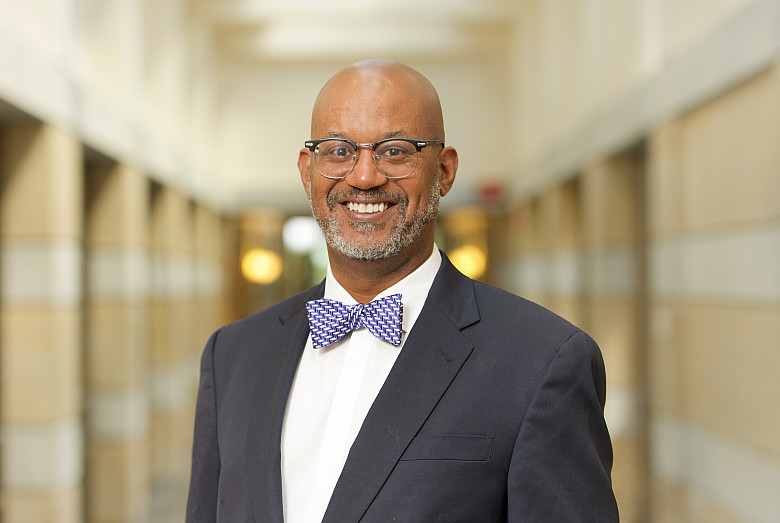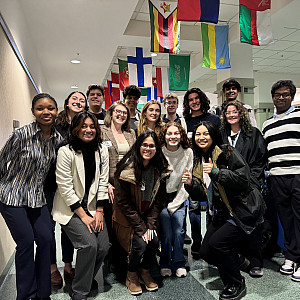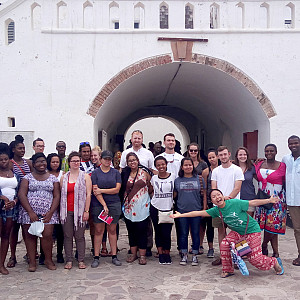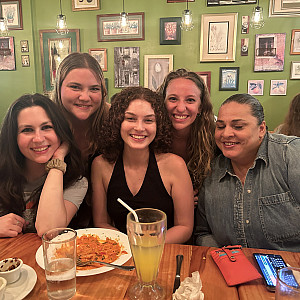Expert in Transforming Communities Returns to Beloit College
Dr. David Anderson Hooker, a national leader in facilitating community change, returns to Beloit College on April 11th. Hooker visited Beloit College in 2019 and 2020 as part of the Community Transformation Workshop, a full-year project funded by the Mellon Foundation aimed at engaging faculty and staff in actively improving campus climate.
Hooker’s last visit, on February 28th, 2020, marked a significant moment of great possibility which was upended by the COVID-19 stay-at-home order only two weeks later.
Now, Dr. Hooker returns as facilitator of this year’s Day of Unity: Your Voice, Your Community. This is an all-day engagement, focusing on the theme of “Crafting a Narrative of a Shared Future for Beloit College.” The day’s main event will be a workshop and dinner on April 11th, from 4 - 7 pm, in the Science Center, bringing together students, faculty and staff, for a facilitated problem-solving session. At a time when local, national and international forces are causing polarization and social fragmentation, this event allows all community members to use their voices for constructive community change on campus.
So, what is a transformative community conference? Hooker describes his approach to facilitation as events where “organizations and individuals work together in facilitated discovery to:
- unveil the major narrative frames that shape their lives;
- notice the presence of alternative stories that are more in line with their preferred narratives;
- identify the relationship patterns, modes of resource distribution, and structures that would support the community’s preferred narrative, and;
- use their discoveries as the foundation for a community transformation plan.” (Hooker 2016; p. 25)
Registration is required for participation in this workshop. Register here.
Dr. Hooker is co-author (with Amy Potter-Czaijkowski) of Transforming Historical Harms and author ofThe Little Book of Transformative Community Conferencing.
The Day of Unity is an initiative of the Office of Student Success, Equity and Community, and is funded by the Weissberg Program in Human Rights and Social Justice.



